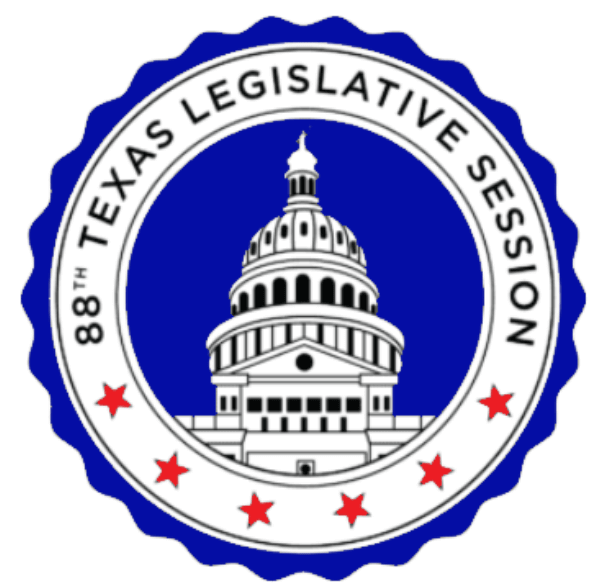HB 1605: 12 Takeaways for Teachers, Parents, and District Leaders
Who wants to read HB 1605 that is 50+ pages of legislative text covering more than 55 sections of the Texas Education Code? We do! And we’ve condensed all those details into this concise, user-friendly summary of House Bill 1605—passed by the 88th Texas Legislature (2023). Sponsored by Rep. Brad Buckley (House) and Sen. Brandon Creighton (Senate), HB 1605 revises how teachers, parents, district leaders, and the Texas Education Agency (TEA) interact with the statewide curriculum and instructional materials.
Think of HB 1605 as a comprehensive upgrade to policies that affect:

Below is the Takeaways for Teachers digest of key changes—helping you skip the legalese and jump straight to what matters most for your campus or district.
1. HB 1605: Teacher Duties, Training & Immunity
Planning & Supplemental Agreements (TEC § 21.4045)
- Optional Extra Duties: A district can sign a supplemental agreement with a teacher who chooses to tackle initial lesson planning or material selection above and beyond normal duties.
- No Forced Creation of Core Materials: If you teach a foundation curriculum course, you can’t be made to develop or select TEKS-based materials without signing an extra-duty agreement.
- Explicit Duty Lists: If a teacher does take on extra duties, the agreement must list every duty, so everyone’s on the same page.
Teacher Immunity (TEC § 22.05125)
- Establishment Clause Complaints: A teacher is shielded from disciplinary action if they faithfully use SBOE-approved, district-adopted materials—even if someone alleges a violation of the First Amendment’s Establishment Clause.
2. HB 1605: Parental Rights & Transparency
Obscene/Harmful Content & IMTA (TEC § 31.1011)
- Districts must ensure annual certification that they comply with the Children’s Internet Protection Act and avoid obscene/harmful content—especially when spending Instructional Materials and Technology Allotment (IMTA) funds.
The New Parent Portal (TEC § 31.154)
- Takeaway for Teachers Access to Approved Materials: Publishers that are TEA-reviewed and SBOE-approved will host a portal where parents can see the unit-by-unit materials their kids use.
Local Responsibilities (TEC §§ 33.004(b), 26.006, 26.0061)
- In-Person & Online: Districts must let parents review almost all teaching materials (not future tests/exams) from 30 days before the school year begins to 30 days after it ends.
3. HB 1605: State & Local Curriculum
State Vocabulary & Literary Works (TEC § 28.002)
- The SBOE will set required vocab and at least one literary work per grade level in ELA/R, starting no later than February 1, 2024.
No Penalizing Teacher Pacing (TEC §§ 28.0027(a)-(b))
- Districts can’t punish teachers for how they pace recommended materials or scope/sequence. Teacher autonomy isn’t lost.
4. Outlawing Three-Cueing in Phonics
Three-Cueing Ban (TEC § 28.0062)
- Districts may not include “three-cueing” methods—where kids guess words from context instead of phonics—in the required phonics curriculum. Phonics means phonics, not guessing.
5. HB 1605: New Instructional Materials Categories
Four Tiers (TEC § 31.002)
- Full Subject Tier One: Covers all TEKS for a subject/grade.
- Partial Subject Tier One: Covers some portion of TEKS.
- Supplemental: Helps teach certain TEKS—not full coverage.
- OER: Open Educational Resources, unchanged in definition but expanded (below).
With these definitions, SBOE and TEA clarify what’s “complete” vs. “partial” vs. “supplemental,” so you know exactly how materials match up to the TEKS.
6. HB 1605: The IMTF: Instructional Materials & Technology Fund
Key Adjustments
- TEA Website & Printing: IMTF can now pay for state-level printing of open resource materials.
- No Constant Approval Requests: Districts just report purchases instead of submitting pre-approval forms for using their IMTA.
- Advance Orders: Districts can order early—the law says “shall” instead of “may,” so TEA should fulfill materials ahead of time.
- Obscene/Harmful: No using IMTA money on anything deemed obscene/harmful. Keep it kid-friendly.
- Accuracy & Suitability: SBOE ensures materials meet TEKS, avoid factual errors, exclude three-cueing for K–3 reading, etc.
- TEA’s Yearly 200: TEA can review up to 200 instructional materials each year, with a rubric the SBOE approves.
Takeaway for Teachers: The Materials Website
- Expect a TEA-run website listing each approved (or rejected) resource, its cost, tech requirements, and TEKS coverage—making local selection easier.
Takeaway for Teachers: The OER Expansion
- Commissioner Authority: TEA can purchase, adopt, or develop OER.
- Advisory Board & Repository: A special board checks OER for bias, alignment, and quality, posting them (free!) in a statewide repository.
- Transition Plan: Districts wanting OER for new subjects or grade levels can apply for TEA support and potential reimbursement if they have a transition plan for teachers.
9. HB 1605: District Obligations & Reporting
- Annual Cost Disclosures: Districts must report which materials they used and how much they spent.
- Skipped Procurement Rules: If materials are already TEA-reviewed & SBOE-approved, districts can bypass some typical purchasing procedures.
10. HB 1605: Extra State Aid & School Finance
More Funds in Your IMTA
- For each student, you get an added $40 (maybe more) yearly to adopt TEA-reviewed HQIM that SBOE deems portal-ready.
- If you print OER, you can get up to $20 per student to offset printing/shipping costs.
11. HB 1605: Local Review of Classroom Materials
Here’s the big new piece: TEA will set standards (with SBOE approval) for local review of supplemental materials—meaning:
- Takeaway for Teachers: If you use resources beyond district-adopted HQIM, the district can (or must) review them for TEKS alignment, compliance, and no harmful content.
- Time-Saving Goal: The process should stay under 30 minutes per review unless absolutely necessary.
- Annual Limit: Districts typically won’t have to re-review the same grade/subject more than once per school year.
- Who Reviews?: Some districts might tap an ESC or a curriculum provider; others will do it in-house.
Ultimately, you’ll have a built-in paper trail to assure parents, boards, and TEA that every resource is aligned and appropriate.
12. HB 1605: The Wrap-Up: Implementation & Repealed Bits
- Immediate & Future: Most HB 1605 changes start in the 2023–24 school year.
- Teacher Contract Section: Those updates take effect in 2024–25.
- Proclamation 2024: Remains under old statutes (so the current cycle for K–12 science, etc., is unaffected).
- Repealed Provisions: Tons of older adoption-cycle rules vanish, replaced by the more flexible review/adoption framework.
We Read the 57 Pages of HB 1605 So You Don’t Have To
Key Takeaways for Teachers:
- Teachers: More protection if you’re using district-approved content, less forced planning time (without a supplemental agreement), and a local review if you supplement heavily.
- Districts: You get extra funds for HQIM and OER printing, but must ensure transparency (portal + in-person viewing) and keep records of every purchase.
- Parents: You gain new rights to see what’s taught, request reviews, and access the “parent portal”—all for better clarity on your child’s learning.
- Local review standards,
- Parent portal specs, and
- OER guidelines and state-adopted instructional materials lists.
References & Future Reading
- Texas Legislature Online
capitol.texas.gov
(Search “HB 1605” for the official text and any updates.) - Texas Education Agency
tea.texas.gov/academics/instructional-materials
(Watch here for rulemaking updates, local review rubrics, and more.) - District Policies
Look at EF(LOCAL) or EFA(LOCAL) to see how your district implements HB 1605—especially around supplemental material reviews and parental access rules.





